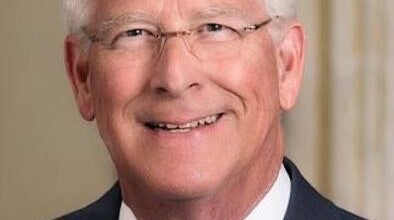How is the NCAA vs. Ole Miss like Mueller vs. Trump?
Published 10:19 am Wednesday, June 6, 2018
Steven Godfrey’s excellent May 30 piece in SBNation, “Crooked Letters,” is an even-handed analysis of the NCAA’s gross mishandling of its 6-year investigation into Ole Miss football.
In the article, Godfrey correctly slams the NCAA for its lack of due process. He reminds us, too, that the major infractions found by the Committee on Infractions (COI) against Ole Miss depended on the credibility of Mississippi State linebacker Leo Lewis, who told the NCAA that Rebel Rags employees used a gift card and removed security tags when they gave him the sports apparel and gear. Rebel Rags owner Terry Warren has since provided records that show such a gift card has never existed, nor has the store ever used security tags
During the NCAA’s COI hearing, Leo Lewis testified that MSU gave him $11,000 in cash. The NCAA dismissed the investigation into MSU because the source of the claim, Lewis, lacked credibility.
Say what?
When Ole Miss argued this point on appeal, the NCAA made the following non-responsive response: “Ole Miss’ arguments are unpersuasive because the panel appropriately concluded the violation occurred based on all the information in the case,” and the “scope and breadth of the severe violations.”
These words mean nothing — the equivalent of saying “because we said so.”
Reading Godfrey’s article, I was struck by the many similarities in two ongoing witch hunts, the NCAA versus Ole Miss and Robert Mueller versus President Donald Trump.
For example, both cases have never-ending investigations.
The NCAA started its investigation on Ole Miss in 2012. In 2018, the case is still on appeal. Mueller’s investigation is now in its second year, with no end in sight. These investigations spawned a tsunami of nation-wide publicity that does immense damage to Ole Miss’ reputation as well as Trump’s ability to carry out his duties.
There are outrageous conflicts of interest in both cases. For example, SEC Commissioner Greg Sankey is a big MSU fan. He attends games, his two daughters attended MSU, and he spoke at MSU graduation in 2016. Sankey only “recused” himself from involvement in the Ole Miss case after most of the damage had been done. It has been reported that Dan Mullen was on the short list for head football coach at Bowling Green when NCAA COI chairman, Xavier Athletic Director Greg Christopher was serving as athletic director. As pointed out in Godfrey’s SBNation article, Mullen initiated and orchestrated the “hate Ole Miss” campaign as part of his rebuilding strategy when he took over the Mississippi State program.
Mueller is good friends with James Comey and Rod Rosenstein. Rosenstein signed one of the Foreign Intelligence Surveillance Act applications. Former FBI Assistant Director Andy McCabe supervised the FBI’s Peter Strzok and Lisa Page, both of whom despised Trump. In one email of a series of correspondence first uncovered and reported by CNN, there is a reference to an “insurance policy” concocted in McCabe’s office with Strzok and Page present; a policy to be used if Trump was elected.
“Follow the money,” is what Deep Throat repeatedly told Woodward and Bernstein. According to Tom Kertsher in his Nov. 3, 2017 Politifact article, among the lawyers on Mueller’s team who made political contributions, $62,043 went to Democrats, and $2,750 went to Republicans.
Additionally, the deep state hates Donald Trump. They want to drown him in the swamp. Bob Mueller, John Brennan, James Clapper, Jim Comey and a myriad of long-time swampsters believe Trump’s decisive electoral victory is illegitimate.
In his SBNation piece, Godfrey opines that MSU’s disdain of Ole Miss, exacerbated by Mullen’s strategic campaign, was instrumental in motivating Lewis. Lewis’s shamefully gleeful tweet of Heath Ledger’s Joker clapping sarcastically when the NCAA issued new charges against the Rebels is evidence of his animus towards Ole Miss. In a separate article for SBNation dated July 26, 2017, Godfrey wrote of NCAA investigator Mike Sheridan’s misrepresentation of himself to a Gulfport hotel clerk in his ill-fated attempt to derail former Ole Miss wide receiver Donte Moncrief’s career.
Both cases also display media bias. Consider how several national sports media outlets blasted Ole Miss repeatedly with their hyperbolic reporting, some of it based on leaks in the run-up to the Rebels’ COI hearing. Sports media is considered by some to be more left-wing than non-sports media, most recently exemplified in the Jemele Hill controversy at ESPN.
In a Sept. 15, 2017, edition of The Sporting News, reporter Michael McCarty exposed rampant liberalism as a major contributor to ESPN’s financial decline, and regardless of current efforts by Ole Miss, many in the left-leaning sports media focus on the university’s perceived racial history, leaving many predisposed to believe the worst.
The Pew Research Center concluded in an October 2017 study that media coverage of Trump has been twice as negative as coverage of previous presidents. The Washington Times reported in March 2018 that a recent study by The Media Research Center found that 90 percent of the media coverage of Trump was negative.
When the NCAA and Mueller investigations are final, perhaps there will be no more gratuitous damage inflicted on Ole Miss and the Trump Presidency. Maybe there will be a silver lining in these two runaway investigations if they result in the repeal of the Special Counsel statute and the curtailment of the NCAA’s dictatorial control over college athletics.
Regardless, both Mueller and the NCAA have proven one fact that is incontrovertible: unchecked power in any institution is a dangerous thing.
Michael Henry writes in Oxford and can be reached at mhenryauthor@gmail.com.




